Article 85: Coffee in the operation of soft power
For a long time, coffee culture in some countries has become the norm. Thereby, the intellectual values and national cultural models create great influence globally.
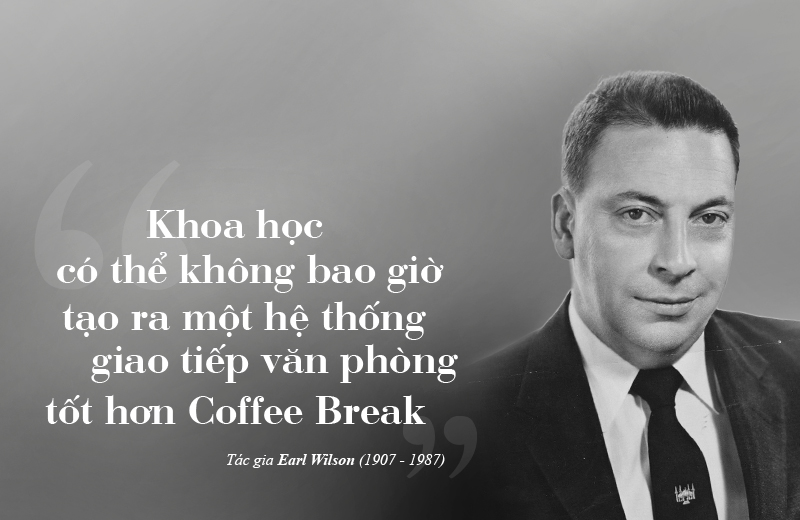
“Science may never come up with a better office communication system than the coffee break.” – Author Earl Wilson (1907-1987
Culture – lifestyle – influence
Since the 20th century, when the cultural industry was formed, the concept that culture is only a spiritual element has changed. Culture has become a key source of national power and plays an increasingly important role in the operation and distribution of power globally. Espresso coffee can be considered as one of the leading cultural phenomena, having a great impact on the international community’s perception of the image and standards of Italy.
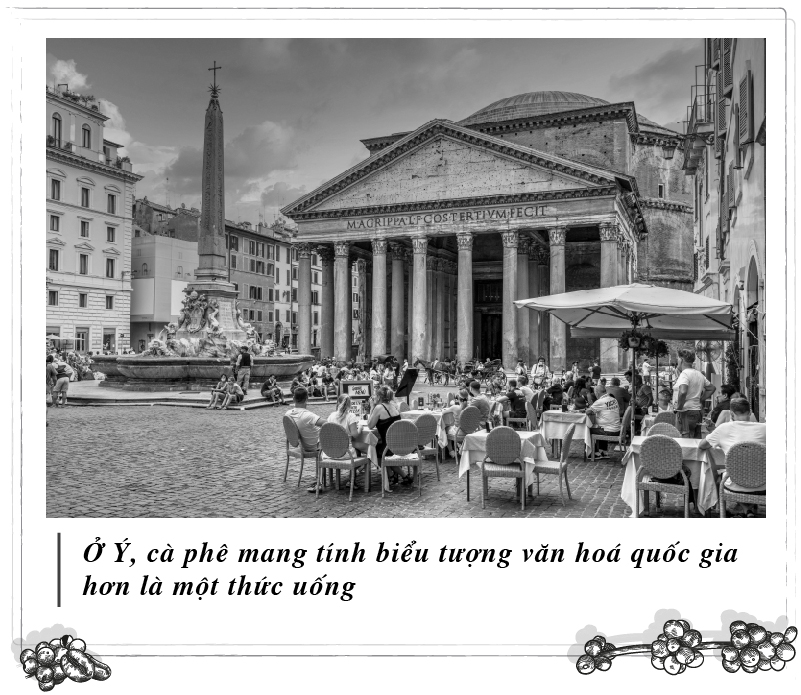
In Italy, coffee is more of a national cultural symbol than just a drink.
The first innovations in espresso machines appeared at the same time as futurism was taking shape in Italy. Not just a trend, futurism has also become a living art that emphasizes innovation and speed, aiming to create a modern Italian identity. In 1909, the manifesto giving birth to futurism was read at the Caffè Giubbe Rosse in Florence (Italy) – a place known as the “Forge of Dreams and Passions”. Since then, the activities at this cafe have become popular throughout Italy, so much so that writers and artists from different regions gather to discuss contemporary issues.
In 1913, an art exhibition of futurism was held at Caffè Giubbe Rosse attracting long lines of admirers to the front of the cafe. It was one of those moments that made both the futurist movement and the Giubbe Rosse cafe so popular and legendary. The young generation’s devotion to cafes of overwhelming futurism, linguist Bruno Migliorini coined the term “giubberossiti – devotees” for this phenomenon.
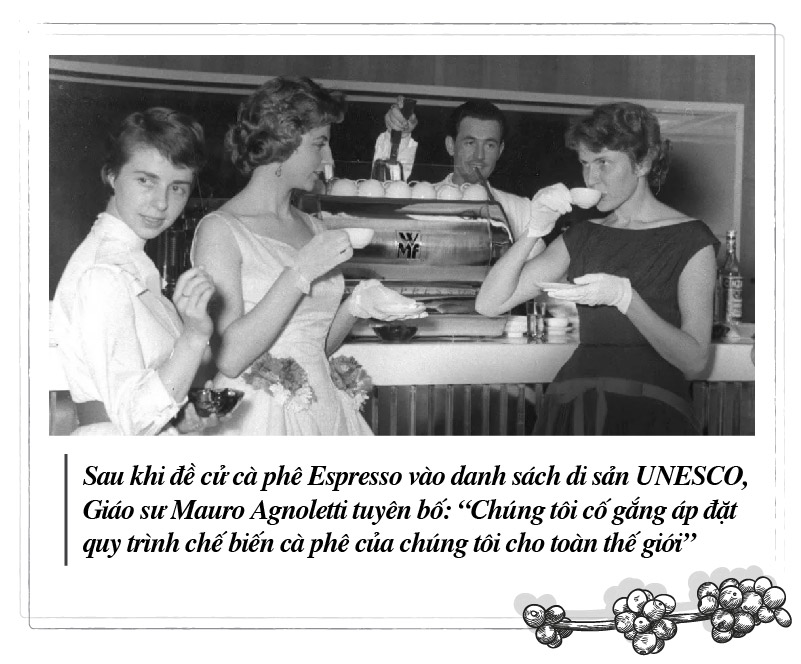
After the nomination of Espresso coffee to the UNESCO heritage list, Professor Mauro Agnoletti stated: “we have managed to impose our processing of the raw material on the whole world.”
Futurism exerted its influence at the same time as the wave of technology began to leave its mark on Italian society, features related to technology, namely speed and dynamism, were favored. Caffé Espresso was first introduced during this period, transforming Italian coffee culture into a new ideal of social progress. Espresso is the breakthrough in the world of coffee. Essentially, the espresso culture is the perfect representation of the modern lifestyle. Espresso has fused the concepts of technological advancement, creativity, and speed. Obviously, coffee has an impact on people’s sharp thinking ability. State-of-the-art brewing equipment also signifies respect for the times and for the lifestyle that coffee drinkers see as part of their identity. People go to coffee shops because of the feeling of being recognized as a member of a special social group. Understandably, the audience chooses to practice a culture that embodies the ideals they aspire to, helping them to become the person they aspire to be. Espresso has just met that desire.
In 1933, the first version of the Moka kettle was born, which is one of the proud symbols of Italian art in the world. Moka kettles are made from aluminum – an important resource in Italian industry, considered “the metal of the future”. The combination of coffee and aluminum cultures makes clear the Italian aspiration to lead the modern era. Filippo Tommaso Marinetti – the founder of futurism called it the agent to free Europe from the cult of the past, towards the new man of the industrial age.
Along with Espresso coffee, the Moka pot has spread Italian culture around the globe. Italian terms like barista, crema, were in vogue in the early 21st century. Above all, the whole world today is enjoying Italian style coffee in all its forms: lungo, ristretto, macchiato, latte, americano, cappuccino… This trend has made Italian soft power history, as sociologist Massimo Cerulo put it: “if it weren’t for Italian espresso and the social ritual of espresso coffee, Italy wouldn’t exist as we know it”.
Today, espresso culture is a symbol of Italian national identity, drawing the rest of the world to follow suit. Italians don’t sell coffee, don’t sell brewing equipment. Through coffee, Italy is promoting Italian excellence and an unmistakable, irreplaceable Italian way of life.
Cultural legend
When the cultural features of a country are widely spread and accepted, soft power and national status will increase. The attractiveness of culture and ideology will convince other peoples to act according to their own ideas.
If we take a break from work and drink a cup of coffee, we are practicing a cultural behavior that originated in America. This culture originated in the community of Stoughton, USA. In the 1880s, female factory workers asked to take breaks from work to cook food and make a pot of coffee. Business owners noticed a marked improvement in workers’ performance after drinking coffee, allowing workers to take a coffee break in the morning and afternoon. To this day, Stoughton still organizes the annual Coffee Break Festival to remember this important historical milestone.
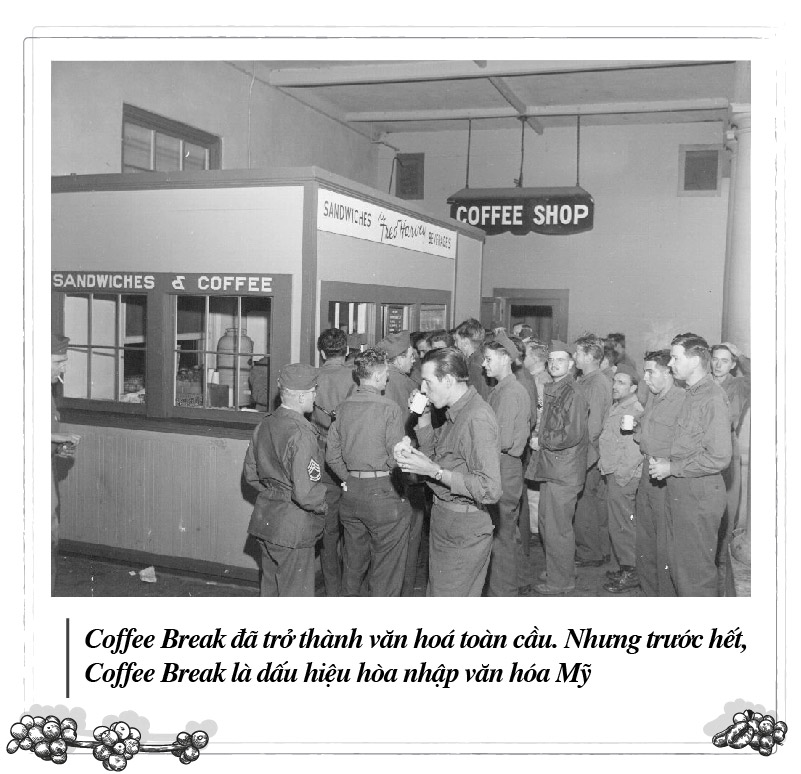
Coffee Break has become a global culture. But first, Coffee Break is a sign of American cultural integration.
It wasn’t until 1951 that halftime break was truly a national issue. The United Auto Workers, which represents workers in American industry, has held talks with businesses about employee benefits, including wages, health insurance, and retirement benefits and rest issues. After the success of the negotiations, a coffee break was included in the employment contract. Then, in 1952, The Pan American Coffee Bureau launched an advertising campaign with the message “Give yourself a Coffee- Break and Get What Coffee Gives to You”, encouraging Americans to drink coffee as a fashionable lifestyle. After this campaign, “Coffee Break” gradually became popular, becoming a ritual applied as American corporate culture.
“Coffee Break” promotes community spirit, helps people re-energize, and facilitates creative thinking by giving people the opportunity to exchange ideas on a variety of topics. In this case, the value of the coffee culture is in line with the nascent aspirations of the society, and thus can bring about temporal changes. “Coffee Break” has become so popular that it is recognized and applied worldwide.
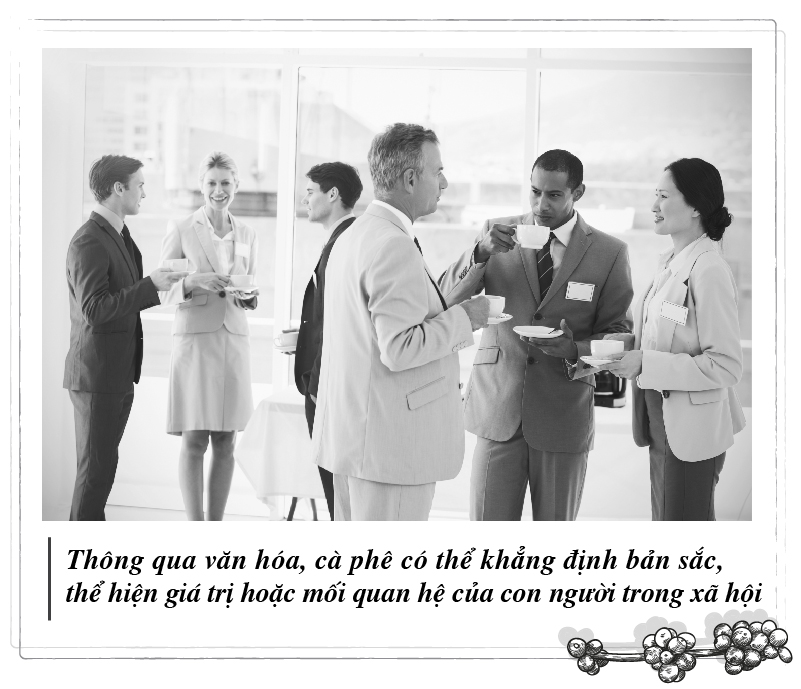
Through culture, coffee can affirm the identity, express the values or relationships of people in society.
A culture and ideology attractive enough, other peoples will gladly follow. The way that Espresso or “Coffee Break” leads world culture is the story of the influence of soft power. Through culture to affirm the identity and values of the nation, the people, making the country naturally attractive to the world. It can also be said that coffee has really played a role in increasing the global soft power index for countries that create culture according to an ideal model that is attractive enough for other peoples.
THE REAL COFFEE
ROASTED ONLY FOR PEOPLE OF WISDOM!
Source: “The Philosophical Way of Coffee” – copyright by Trung Nguyen Legend
Coming up: The role of coffee in ancient to modern medicine


